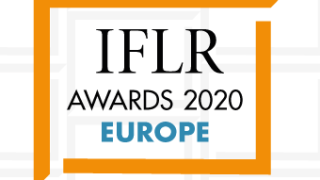Ireland
The tie-up will strengthen the combined firm’s corporate, banking and finance, and capital markets offering
The move will result in an expansion of Fieldfisher’s corporate presence in the region
Partner and senior counsel Myra Garrett highlights the key deals the firm has worked on and how it wins business in an increasingly competitive legal landscape
The finalists for the 26th annual Europe awards are revealed - winners will be presented in London on April 3
The finalists for the 25th annual Europe awards are revealed - winners will be presented in London on April 24
The Women in Business Law Awards is excited to present its shortlist for the 2022 EMEA awards.
3rd annual awards announce winners across 58 categories
Sponsored
Sponsored
-
Sponsored by Maples GroupThe Irish parliament is debating a bill which, if passed, would regulate the owners of Irish loan portfolios. The proposed legislation – the Consumer Protection (Regulation of Credit Servicing Firms) [Amendment] Bill 2018 (the Bill) is understood to have been triggered by reports of intended loan sales by particular retail banks in Ireland. Since 2015, non-regulated owners of loan portfolios comprising loans to consumers and small and medium-sized enterprises (SMEs) have been required to appoint a regulated credit servicer to manage the portfolio. This was to ensure that consumers and SMEs would continue to enjoy their statutory customer protection even though their creditor was unregulated. Broadly, this ensured consumers and SMEs were in the same position as if facing a regulated retail bank. However, in some political circles this regime has been perceived as providing insufficient protection to borrowers.
-
Sponsored by Maples GroupThe Irish Central Bank (CBI), in common with other EU regulators, will be focused in 2018 on intensified supervision of anti-money laundering/counter-terrorist finance compliance, data protection, and ensuring banks and other regulated institutions have robust cyber security systems. However, in Ireland another area is emerging. This is the question of individual responsibility for increased regulatory scrutiny by directors and senior managers for regulatory breaches by their institution.
-
Sponsored by Maples GroupThe Central Bank of Ireland (CBI) regulates the banking and finance industries in Ireland. It has a broad range of investigative powers to allow it to perform its supervisory and regulatory functions. These include the power to enter into and search premises, take copies of documents and obtain information in other ways. The legislation protects the right to legal professional privilege (LPP) enjoyed by a person who is the subject of the exercise of those powers. However, the legislation is otherwise generally silent on issues such as the right to privacy of personal information. The interaction of regulatory powers with the right to privacy in our digital age has been the subject of much discussion recently in Ireland.
















